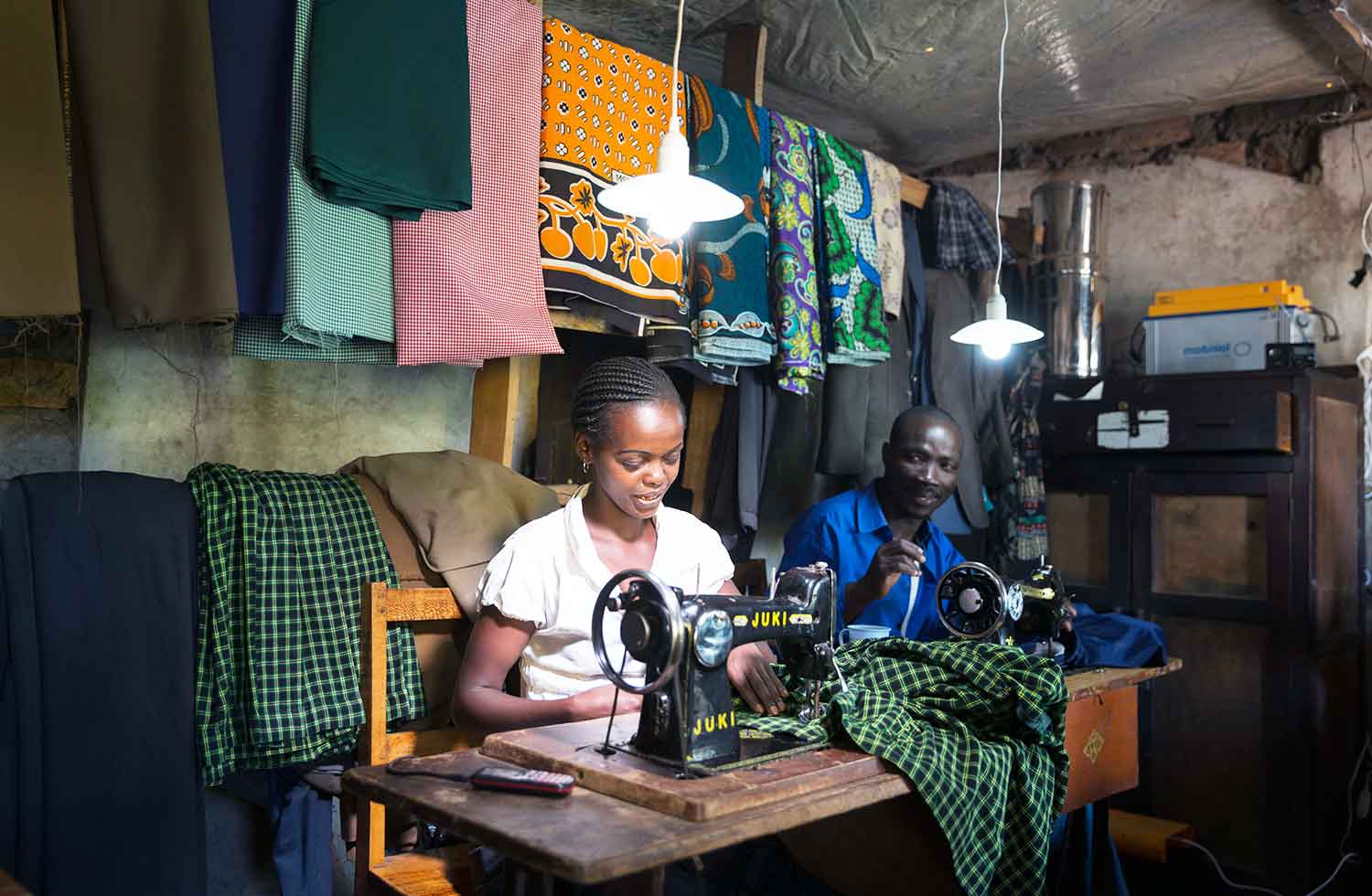Solar Energy for Education and Jobs in Tanzania

Project type: Solar
Project location: Tanzania
Project status: In operation, no credits available
Annual emission reduction of the whole project: 10,000 t
This climate protection programme implements high-tech solar home systems including a GSM modem that deliver a clean, affordable alternative to fossil fuels for low-income households and small enterprises in Tanzania. The technology reduces carbon emissions effectively, owing to an innovative monitoring approach.
2.5 billion people worldwide live without a reliable electricity source to fill their daily energy needs. They use inefficient and costly fuel-based lighting sources such as kerosene lamps, which greatly curtail their activities once darkness sets in. ENGIE Energy Access (formerly Mobisol), the programme developer and project partner, combines solar energy with innovative mobile technology and microfinance to provide high-tech solar home systems (SHS) to remote households across Africa.
The technology
The SHSs include a solar panel, battery, lights, as well as a cell phone charger. The systems are currently available in four different sizes meeting the needs of low income households as well as of small enterprises. The smallest unit can light two rooms and charge four mobile phones per day. The largest system powers multiple lights, consumer appliances such as laptops, televisions or solar powered refrigerators and charges up to ten mobile phones simultaneously. ENGIE Energy Access provides service for system installation with local trained technicians. Through the Global System for Mobile Communications (GSM) modem included in the solar controller, technical data concerning the panel, battery and energy consumption can be tracked and monitored by local technicians in a web-based interface. This remote monitoring technology allows potential maintenance problems to be addressed swiftly.
I enjoy seeing our customers happy. We install an easy-to-use and durable product with wide ranging after-sales services and warranty.
Modern information and communications technology (ICT) solution
A pay-as-you-go system circumvents the initial investment hurdle for customers who previously could not afford high-quality solar home systems. Using mobile banking the cost can be paid off conveniently via their mobile phones in a microfinanced 36-month installment plan. Customers without a personal bank account can purchase a system and relatives from other locations can help to finance it.
Thanks to this modern information and communications technology (ICT) solution, this PoA will reduce greenhouse gas emissions by the displacement of fossil fuel use, such as in fuel-based lighting systems and/or stand-alone power generators. By substituting poor kerosene lamps with strong solar powered LED lights and reliable energy, environmental but also social and economic benefits can be achieved. Taking advantage of longer light hours achieved by the electrification of their houses, beneficiaries can greatly increase their productivity through working in the evening.
Where exactly does the money from carbon finance go?
Carbon finance is being invested in activities that facilitate project scale-up to reach remote locations as well as local partner capacity building, developing marketing and outreach resources, and enhancing distribution channels.
Project and implementation partner of myclimate
The project is developed and implemented by the above mentioned ENGIE Energy Access Tanzania.
Monitoring and verification of the project
The sale of the emission reductions achieved by the project is essential for the project, as it will further motivate the scaling of its products to many more marginalized communities within the market. The project is registered with Gold Standard. The project is monitored annually and then verified and audited by an independent third party. Further information can be found under "Documentations".
This project contributes to 8 SDGs*
*as at the end of 2023. Find out how myclimate reports these SDGs in our FAQ.
The following SDGs are verified by the Gold Standard:
Solar home systems reduce the risk of air pollution from kerosene fumes positively improving the health of over 646,000 people.
Locally 800 women, men and youth have gained training from the project.
Over 45% of employees are women with equal opportunity to gain skills as men.
109,638 homes benefit from clean and efficient lighting and energy.
284 locals employed by the project
The project reduces 10,000 tCO2 contributing to national and internal measures to address climate change.
These SDGs have been approved by myclimate:
109,638 households have access to appropriate new clean and efficient technology, saving 148 USD and 101 litres of kerosene and 31 USD on mobile charging costs per household per year.
Sustainable waste management for solar home systems in place for collection, sorting and recycling.
Situation without project
Use of kerosene lamps and diesel generators for lighting and electricity generationProject standard

Awards

Project number
7196

















